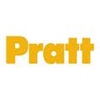Want to update the data for this profile?
Claim it!
Admissions
Acceptance Rate
80
Applied
72
Accepted
13
Enrolled
Applying
50
Application Fee - Domestic
90
Application Fee - International
Yes
Electronic applications accepted?
Application Deadlines
| Type | Domestic | International | Priority date |
|---|---|---|---|
| Fall deadline | January 5th | January 5th | No |
| Spring deadline | October 1st | October 1st | No |
Entrance Requirements
| Exam | Details | |
|---|---|---|
| Master's Degree Requirements | Writing sample, bachelor's degree, transcripts, letters of recommendation, portfolio |
| Exam | Details | |
|---|---|---|
| TOEFL: Required |
TOEFL Paper score: 563 TOEFL IBT score: 85 |
Tuition & Fees

Tuition & Fees
$35,226
Tuition & Fees

Financial Support
| Financial award applicants must submit: | FAFSA |
|---|---|
| Application deadlines for financial awards | February 1 |
| Types of financial support available |
Health Care Benefits Institutionally-sponsored Loans Scholarship and/or loans Graduate Assistantships Career or field-related internships Federal Work-Study Financial support for part-time students |
Student Body
41
Total Graduate Students
19%
International Breakout (representing other countries)
Race/Ethnicity
| Hispanic/Latino | 14.63% |
|---|---|
| Black or African American | 4.88% |
| White or Caucasian | 48% |
| American Indian or Alaska Native | Not Reported |
| Asian | 2.44% |
| Native Hawaiian or Pacific Islander | Not Reported |
| Two or more races | 4.88% |
| Unknown | 4.88% |
Gender
Male (48%)
Female (51%)
Research
| Focus of faculty research: | Advocacy planning, community development, comprehensive physical planning, transportation planning, real estate development |
|---|---|
| Externally sponsored research expenditures last year: | 0 |
Location & Contact
Address
200 Willoughby Avenue
Brooklyn, NY 11205
United States
Brooklyn, NY 11205
United States
Pratt Institute
×


